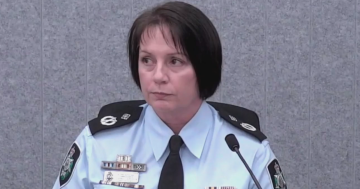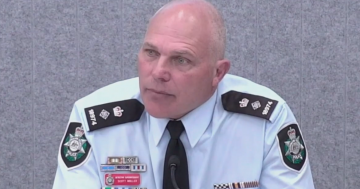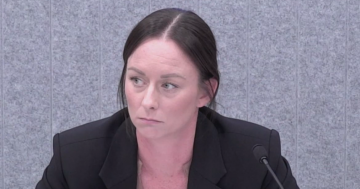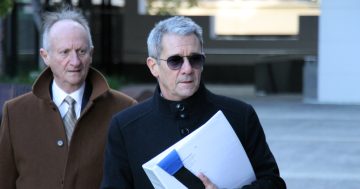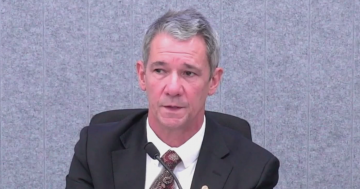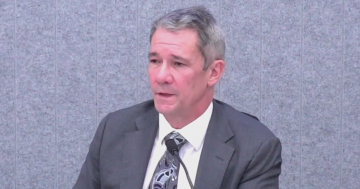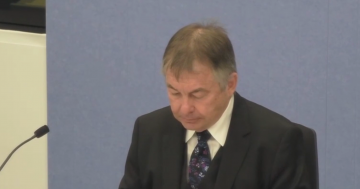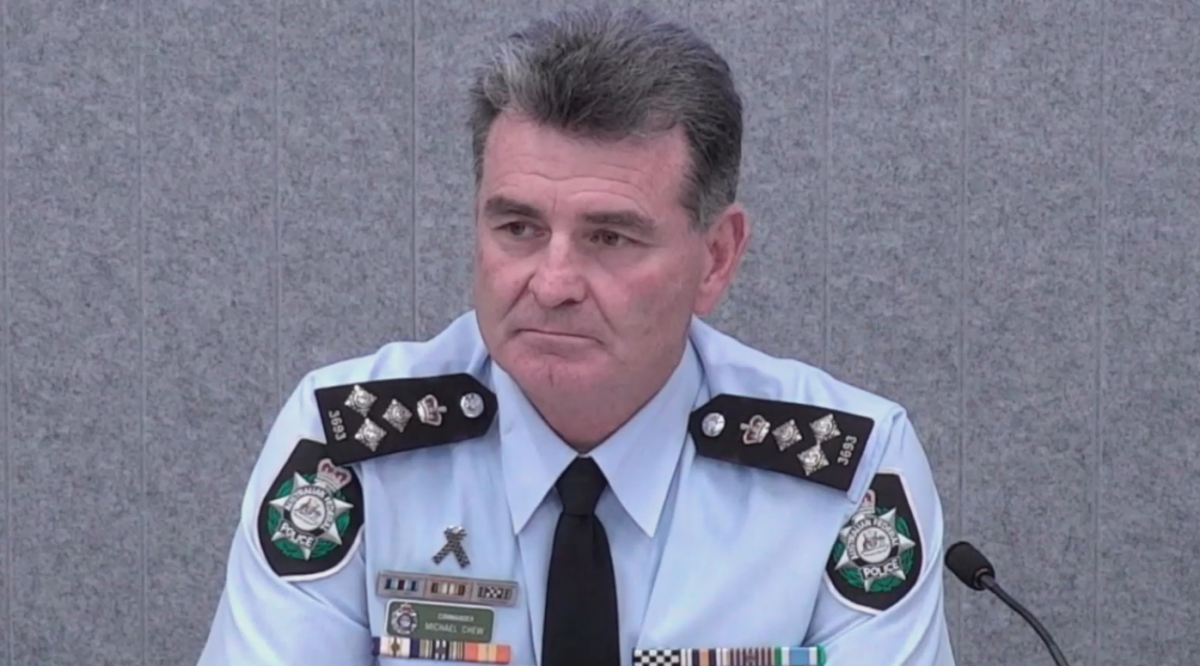
Commander Michael Chew told the inquiry on Friday that he felt the case against Bruce Lehrmann was weak but that the brief of evidence nevertheless met the threshold to proceed. Photo: Screenshot.
Commander Michael Chew told the Board of Inquiry on Friday afternoon (26 May) that, in his personal view, there was “insufficient evidence or a very weak case” to proceed with the prosecution of Bruce Lehrmann.
Commander Chew was asked about a diary note written by Detective Superintendent Scott Moller while the case was ongoing, when he said: “If it were my choice I wouldn’t proceed, but it’s not my choice, there is too much political interference.”
He clarified that by “political interference”, he was referring to comments made by politicians in the media.
“It would have been quite challenging to work through those issues from the media scrutiny and the environment we were in,” he said, explaining why he felt it was “not my choice” whether the case proceeded.
During the first module of the inquiry, Director of Public Prosecutions Shane Drumgold said that he had held concerns at the time of “a possible, if not probable” political conspiracy, and a potential “connection between federal interfering and ACT Policing”.
When counsel assisting Erin Longbottom asked whether there had been any “direct political interference to ACT police”, Commander Chew said: “No, I had no direct or indirect influence or interference from any external or internal sources.”
While Commander Chew maintained that his personal view was that the case against Mr Lehrmann was weak, he explained that he still formed the view that the brief of evidence met the threshold needed for the case to proceed.
“Did I think it was a strong case? Probably not,” he said. “But when broken down to the issues of the investigation, the threshold was definitely there because we had an alleged victim who provided a version of events, we had an alleged offender who provided a version of events, we had no forensic corroboration, we had limited corroboration in relation to the occurrence and the location and those type of things, so the potential of a successful prosecution was there.”
In earlier questioning, Commander Chew highlighted that his direct involvement in the Lehrmann matter was out of the ordinary, but this case was “very unique due to the profile of the investigation at the time”, and there was “closer oversight” as a result of this.
He told the inquiry that the intense media scrutiny and interest was one factor that contributed to his decision to escalate the investigation to the AFP Sensitive Investigations Oversight Board (SIOB) for additional review, as well as seeking that the matter be referred to the DPP for legal advice.
“It was quite a unique investigation and environment at the time,” Commander Chew said.
“It’s the first time that I’ve seen in my experience media reporting to such a level in relation to an ACT sexual assault investigation, or any investigation, let alone a sexual assault investigation.
“We had the prime minister commenting on it, we had senior government ministers making comments in the media on it, we had two government ministers who were witnesses within the investigation.
“There was also a significant movement at the time, the MeToo movement was gaining momentum, and the alleged victim in this case became involved in that through very high-profile journalists, which again created more of a media interest, and it was that whole environment that created a situation where we needed to be thorough and transparent … but also ensure we had good decision-making processes.”












